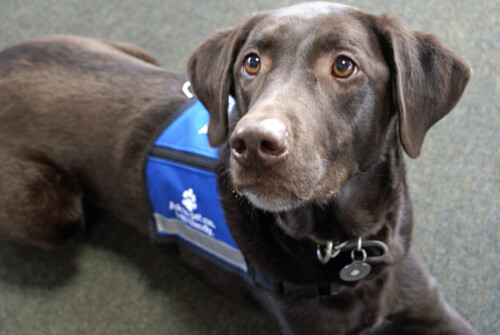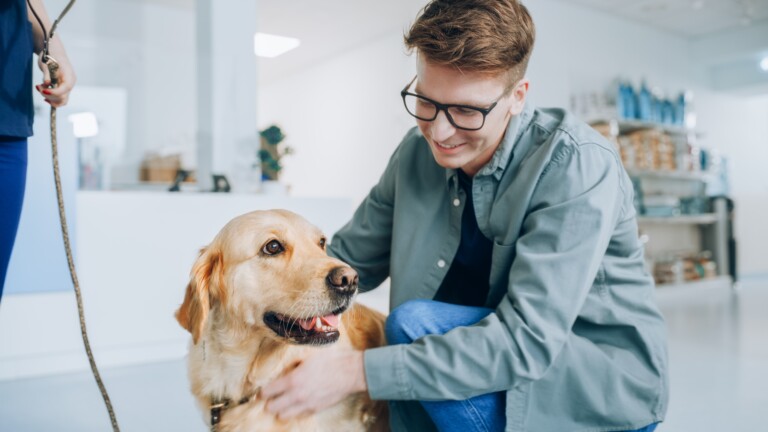
Service dogs are creating new ways for dentists to meet their patients’ needs and support them emotionally.
Dr. Rachel Lewin, from Maple Glen, Pennsylvania, had a lifelong aspiration to work in healthcare, inspired by her parents who were physicians. Her journey toward becoming a dentist took unexpected paths.
During her time as an undergraduate student, she encountered health challenges due to disc herniations. An 18-month stint in physical therapy helped her regain balance and mobility, aided by her pet Rottweiler, Nala. However, Nala’s passing left a void in her life, leading her to search for a new furry companion.
Enter August Adventure, the Goldendoodle. Dr. Lewin met him at just four weeks old, and the two quickly became inseparable partners. August became an integral part of Lewin’s life and work, and has received over 1,000 hours of training.
Click the video below to see more of Dr. Lewin’s and August’s story:

A Lap Dog AND a Service Dog
Her dream of owning her own dental practice became a reality in 2021, when Beyond Dentistry opened its doors in Maple Glen, Pennsylvania. Patients now have the unique opportunity to have August, the therapy dog, join them during their dental visits, providing comfort and anxiety relief by offering deep pressure therapy.
Beyond her practice, Dr. Lewin’s dedication to organized dentistry shines through her volunteer leadership roles, earning her recognition with the prestigious “10 Under 10 Award” from the Pennsylvania Dental Association in 2023.
To Dr. Lewin, the magic of August’s contributions has opened her eyes to the transformative potential of these animals in revolutionizing dental care.
Dr. Lewin isn’t the only dentist incorporating service dogs into serving their patients. New York City dentist Dr. Carlos Huerta was featured by Inside Edition for his spaniel mix trained therapy dog, Luna.
Service Animal Guidelines
Dentists in America are free to incorporate service animals into their practice under the Americans with Disabilities Act. The American Dental Association has issued a set of guidelines for incorporating service animals into dental practices, specifically.
Emotional support animals, comfort animals, and therapy dogs are not automatically service animals, and they are not governed by the same set of rules. Instead of following federal guidelines, like we do with service animals, each dental practice must develop its own internal policies regarding if and how support animals will be involved in the office.
Even though they are not technically service animals, support animals can be a valuable part of your dental practice. You just need to be aware of the differences, what role your support or service animal fulfills, and what rules you need to follow accordingly.
Policies for Emotional Support Animals
The Journal of the American Dental Association (JADA) offers instructions on drafting an ethical policy around emotional support animals in a dental practice setting, and they place the emphasis on the best judgment of individual dentists. As stewards of their own business, in addition to being practitioners, dentists need to consider what is best for the care and emotional wellbeing of their patients and staff.
Here are a few things JADA urges dentist to take into account when considering the use of a service or support animal:
- How can patients and staff be informed ahead of time about the presence of support animals?
- Should dentists consult an allergist for guidance on specific dog breeds?
- When a person allergic to dog dander and someone using a support animal need to be in the same space, what accommodations can be provided?
- Should support animals be prohibited from operating rooms to maintain a sterile environment?
- What modifications to policies or practices need to be made to account for the presence of a support?
- How should policies regarding support animals be communicated to patients and staff?
Learn More
To learn more about dental service animals in action, visit Beyond Dentistry or the American Dental Association.


